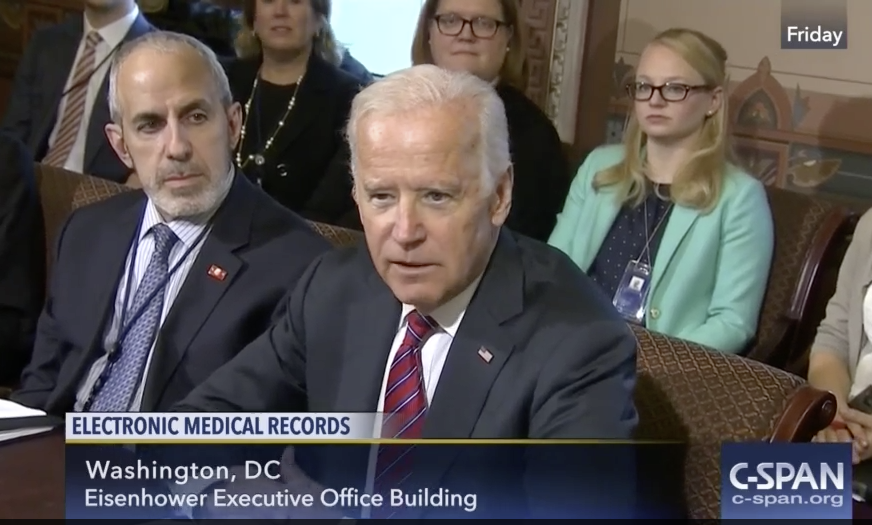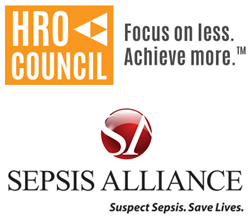Mayo Clinic
See the following -
Infectious Diseases Could Sweep Across Texas as Harvey Floods Houston
In the coming weeks and even months, residents of Houston and other parts of southern Texas hit hard by Hurricane Harvey will be faced with the public health disasters that can result from dirty floodwater and landslides. The natural disaster has ostensibly turned the city into a sprawling, pathogen-infested swamp. Up to 25 inches of rain have already accumulated in two days. Rains are expected to continue until Wednesday night, and by the end, Harvey will have dumped 40 to 50 inches on the metropolitan area. Heavy precipitation is turning entire neighborhoods into contaminated and potentially toxic rivers. For many of the city’s residents, contact with floodwater is unavoidable, putting them at risk for diarrhea-causing bacterial infections, Legionnaires’ disease and mosquito-borne viruses...
- Login to post comments
Is The 1.5+ Trillion Dollar HITECH Act a Failure?
 Hopefully, the public statements made by President Obama and Vice President Biden will lead to a public debate over the monumental problems that the HITECH Act and proprietary EHR vendors have caused the American people. While the press continues to report the figure of $35 billion as the cost of implementing EHRs, that figure does not tell the entire story. Perhaps the next step is to provide accountability and transparency. That would start with firm numbers regarding the real costs of EHR implementations forced on an unprepared healthcare system by the HITECH Act.
Hopefully, the public statements made by President Obama and Vice President Biden will lead to a public debate over the monumental problems that the HITECH Act and proprietary EHR vendors have caused the American people. While the press continues to report the figure of $35 billion as the cost of implementing EHRs, that figure does not tell the entire story. Perhaps the next step is to provide accountability and transparency. That would start with firm numbers regarding the real costs of EHR implementations forced on an unprepared healthcare system by the HITECH Act.
- The Future Is Open
- Login to post comments
NIH to Bring Precision Medicine Data Collection to Patient Homes
Thousands of volunteers for the All of Us precision medicine cohort won’t even have to leave the comfort of their living rooms when contributing data to the project thanks to a new NIH collaboration with mobile medical service EMSI. The All of Us program, formally known as the Precision Medicine Initiative (PMI) Cohort, aims to collect biosamples from at least one million patients to fuel big data analytics and personalized medicine research...
- Login to post comments
Obama and Biden Blast EHR Vendors for Data Blocking
 As they are winding their terms in office, President Barack Obama and Vice President Joe Biden dropped a stink bomb on the health IT industry. Speaking at different events on Friday, January 9th, the President and Vice President both criticized proprietary electronic health record (EHR) vendors as the primary obstacle to the success of their administration’s health care strategy. This is the highest level acknowledgment so far of the serious impact that “lock-in” EHR software vendors are having on America’s medical infrastructure and the ability of physicians to provide medical care.
As they are winding their terms in office, President Barack Obama and Vice President Joe Biden dropped a stink bomb on the health IT industry. Speaking at different events on Friday, January 9th, the President and Vice President both criticized proprietary electronic health record (EHR) vendors as the primary obstacle to the success of their administration’s health care strategy. This is the highest level acknowledgment so far of the serious impact that “lock-in” EHR software vendors are having on America’s medical infrastructure and the ability of physicians to provide medical care.
ONC Announces Blockchain Challenge Winners
 The Department of Health and Human Services’ Office of the National Coordinator for Health Information Technology (ONC) today announced the winners of the Use of Blockchain in Health IT and Health-related Research Challenge. A Blockchain—most commonly associated with digital currency—is a data structure that can be timed-stamped and signed using a private key to prevent tampering. ONC received more than 70 submissions from a wide range of individuals, organizations and companies addressing ways that Blockchain technology might be used in health and health IT to protect, manage, and exchange electronic health information...
The Department of Health and Human Services’ Office of the National Coordinator for Health Information Technology (ONC) today announced the winners of the Use of Blockchain in Health IT and Health-related Research Challenge. A Blockchain—most commonly associated with digital currency—is a data structure that can be timed-stamped and signed using a private key to prevent tampering. ONC received more than 70 submissions from a wide range of individuals, organizations and companies addressing ways that Blockchain technology might be used in health and health IT to protect, manage, and exchange electronic health information...
- Login to post comments
Parrish Medical Center Launches Mobile Health Application For Apple And Android Devices
Medical Center has launched a free mobile app with information and tools needed to manage day-to-day health. Read More »
- Login to post comments
Pharmaceutical And IT Communities Collaborate On OASIS Clinical Trial Data Standard For Content Management Systems
The pharmaceutical community, health care organizations, and software providers are coming together at the OASIS open standards consortium to define a machine-readable content classification standard for the interoperable exchange of clinical trial data via content management systems. The work of the new OASIS Electronic Trial Master File (eTMF) Standard Technical Committee will promote interoperability across diverse computing platforms and cloud networks within the clinical trials community.
- Login to post comments
Physician Burnout Is A Public Health Crisis: A Message To Our Fellow Health Care CEOs
 The Quadruple Aim recognizes that a healthy, energized, engaged, and resilient physician workforce is essential to achieving national health goals of higher quality, more affordable care and better health for the populations we serve. Yet in a recent study of U.S. physicians, more than half reported experiencing at least one symptom of burnout—a substantial increase over previous years—indicating that burnout among physicians is becoming a national health crisis. Leadership is needed to address the root causes of this problem and reposition the health care workforce for the future. The authors of this paper—the CEOs of our respective institutions—are committing to do just that...
The Quadruple Aim recognizes that a healthy, energized, engaged, and resilient physician workforce is essential to achieving national health goals of higher quality, more affordable care and better health for the populations we serve. Yet in a recent study of U.S. physicians, more than half reported experiencing at least one symptom of burnout—a substantial increase over previous years—indicating that burnout among physicians is becoming a national health crisis. Leadership is needed to address the root causes of this problem and reposition the health care workforce for the future. The authors of this paper—the CEOs of our respective institutions—are committing to do just that...
- Login to post comments
Security: Healthcare's Fixer-Upper
The alarming state of affairs, how the industry's slack security is bad for business and what some are doing to step it up...
- Login to post comments
Significant Threats to Patient Safety from Healthcare Provider Overload and Burnout Must be Addressed
 Sepsis Alliance and the High Reliability Organization Council (HROC), two leading national advocates for patient safety, are raising the alarm on shortages in healthcare personnel, and the increase in data overload and medical provider burnout that is putting more and more patients at risk. Examples include long wait times to get appointments (which affects access to care), misdiagnoses that delay care, wrong-site surgeries, and other safety failures...
Sepsis Alliance and the High Reliability Organization Council (HROC), two leading national advocates for patient safety, are raising the alarm on shortages in healthcare personnel, and the increase in data overload and medical provider burnout that is putting more and more patients at risk. Examples include long wait times to get appointments (which affects access to care), misdiagnoses that delay care, wrong-site surgeries, and other safety failures...
- Login to post comments
Silicon gurney: EHR go-lives turn hospitals into software shops
Hospitals invest so much money in EHR implementations that it changes the very nature of their organization. And that means they need to think about operating more like a software company than just a hospital. If $100 million sounds like an exorbitant or even unrealistic ticket for an electronic health records platform, in fact, consider that Kaiser Permanente, Mayo Clinic and Partners HealthCare have publicly acknowledged spending an order of magnitude more than that — while other hospitals such as Scripps Health, Lehigh Valley Health Network, Lahey Hospital Medical Center and Lifespan revealed budgets bigger than $100 million. And that’s just to rattle off a fistful...
- Login to post comments
Stanford’s John Ioannidis On “Underperforming Big Ideas”
 In a thought-provoking JAMA commentary out today, Stanford’s John Ioannidis, MD, DSc, and two colleagues call for biomedical researchers — and funding institutions — to “sunset underperforming initiatives.” Nothing controversial there, until you go on to read that some of those initiatives are in the popular fields of gene therapy, stem cell therapy or precision medicine. And, they write, perhaps some less-successful projects have been pursued simply because they fall within a top research field.
In a thought-provoking JAMA commentary out today, Stanford’s John Ioannidis, MD, DSc, and two colleagues call for biomedical researchers — and funding institutions — to “sunset underperforming initiatives.” Nothing controversial there, until you go on to read that some of those initiatives are in the popular fields of gene therapy, stem cell therapy or precision medicine. And, they write, perhaps some less-successful projects have been pursued simply because they fall within a top research field.
- Login to post comments
The Argonaut Project Charter
Yesterday, a group of private sector stakeholders including athenahealth, Beth Israel Deaconess Medical Center, Cerner, Epic, Intermountain Health, Mayo Clinic, McKesson, MEDITECH, Partners Healthcare System, SMART at Boston Children’s Hospital Informatics Program, and The Advisory Board Company met with HL7 and FHIR leadership to accelerate query/response interoperability under the auspices of ANSI-certified HL7 standards development organization processes.
- Login to post comments
The Not-So-Precise Side of Precision Medicine
The launch of the Precision Medicine Initiative in 2015, along with this year's Cancer Moonshot, have touted the promise of genomic data for population health and more personalized diagnosis. As a result, more consumers are seeking genetic testing and more researchers are contributing to these initiatives. But the healthcare industry isn't necessarily prepared for this shift. The popularity of genetic testing doesn't come without risks, according to Mayo Clinic's recent report, The Promise and Peril of Precision Medicine...
- Login to post comments
The Widespread Problem of Doctor Burnout
 The patient, a powerfully built middle-aged restaurant worker, had awakened one morning with a tight pain in his shoulders that traveled down his right arm. At work, he could barely shrug his shoulders or turn his head. “My fingers were so weak,” he recalled, “that I couldn’t even get a good grip around a glass of water.” A senior doctor at a local clinic diagnosed a pinched nerve and prescribed a muscle relaxant. Two weeks later, only more incapacitated, the patient went to another clinic, where a younger doctor made the right diagnosis: A malignant tumor in his chest was pressing against a nerve to his arm...
The patient, a powerfully built middle-aged restaurant worker, had awakened one morning with a tight pain in his shoulders that traveled down his right arm. At work, he could barely shrug his shoulders or turn his head. “My fingers were so weak,” he recalled, “that I couldn’t even get a good grip around a glass of water.” A senior doctor at a local clinic diagnosed a pinched nerve and prescribed a muscle relaxant. Two weeks later, only more incapacitated, the patient went to another clinic, where a younger doctor made the right diagnosis: A malignant tumor in his chest was pressing against a nerve to his arm...
- Login to post comments